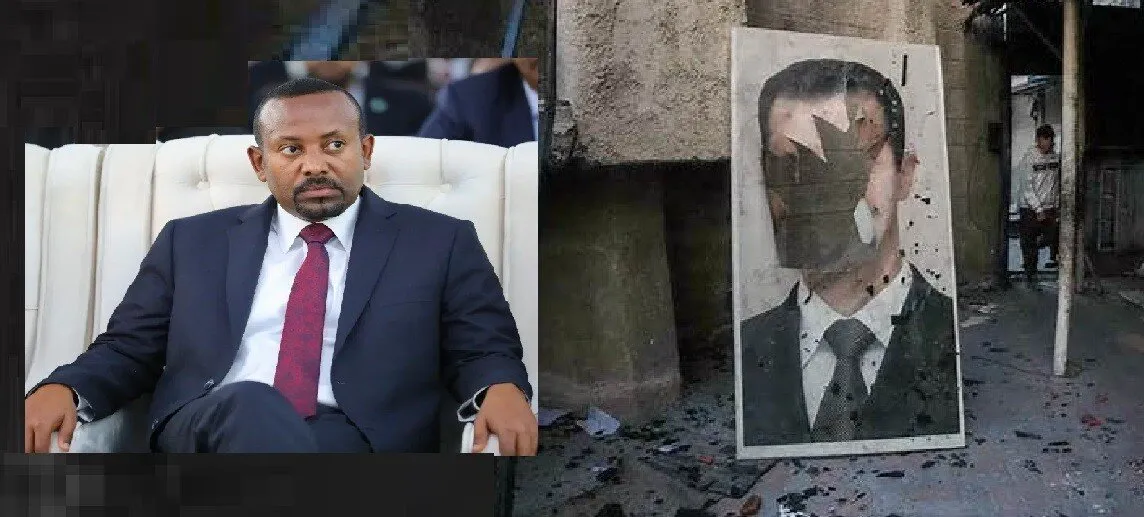June 5, 2013 (KHARTOUM) – The Sudanese foreign ministry and the Egyptian embassy in Khartoum said today that have no knowledge of a visit by the director of the Egyptian intelligence as reported by government-owned and private media outlets in Cairo.
Egyptian President Mohamed Morsi (C) meets with Defense Minister Abdel Fattah al-Sisi (2nd L) with the Head of Egypt Intelligence Mohamed Raafat Shehata (L) and Interior Minister Mohamed Ibrahim (R) at El-Thadiya presidential palace in Cairo May 23, 2013 in this picture provided by the Egyptian Presidency
Several Egyptian newspapers quoted security sources at Cairo airport as saying that a delegation led by spy chief Mohamed Raafat Shehata has boarded Egypt Air plane to Khartoum on Wednesday morning.
It was reported that Shehata was set to discuss Ethiopia’s Grand Renaissance Dam and its move last week to divert a stretch of the Blue Nile river to make way for the $4.7 billion hydroelectric plant. The Blue Nile joins the White Nile in Khartoum to form the Nile which flows through Sudan and Egypt before emptying into the Mediterranean.
But the Egyptian consul-general in Khartoum Mutaz Mustafa Kamel denied to the independent Khartoum newspaper any truth to reports of Shehata’s visit.
The Sudanese foreign ministry said that while it has no knowledge of the visit, it suggested that it could have taken place in coordination between Egyptian President Mohammad Morsi and his counterpart Omer Hassan al-Bashir.
Morsi phoned Bashir yesterday to discuss the issue of the Ethiopian dam, state media reported.
Egypt, which has been involved in years of troubled diplomacy with Ethiopia and other upstream countries, said Ethiopia must now halt work on the dam and cautioned that all options are on the table to deal with this development.
“It is Egypt’s right to defend its interests, and other people have a right to follow their own interests. But there must be assurances the Ethiopian dam will not affect Egypt, otherwise all options are open,” Ayman Ali, an adviser to Egyptian President Mohammad Morsi, warned on Wednesday according to Egypt’s media.
Pakinam el-Sharkawy, another presidential adviser, told the official MENA news agency that Egypt would demand that Ethiopia cease the construction of the dam, AFP reported.
The presidency considers the dam as a “national security” issue for Egypt, Sharkawy added.
“Demanding of Ethiopia to stop construction of the dam it intends to build on the Blue Nile will be our first step,” she said, according to MENA.
Cairo has also grown concerned over what it views as Sudan’s reluctance to adopt its stance and condemn the Ethiopian project prompting criticism from some Egyptian politicians including opposition figure Ayman Nour who described Khartoum’s stance as “disgusting”.
The Sudanese information minister and government spokesperson Ahmed Bilal Osman called on Egyptian officials to refrain from insulting his country.
“Our view would not please the Egyptians and will upset them but Sudan will benefit greatly from the [Ethiopian] dam,” Osman said in a TV interview.
“The hurtful talk [against] Sudan does not serve the interests [of Egypt]” he added.
The Sudanese official further said the dam will enhance the flow of water from the huge reserves and feed the underground water while reducing dependency on rainfall. He said the benefits of the Ethiopian project will be shared by both nations.
The first phase of construction is due to be finished in three years, with a capacity of 700 megawatts. Once fully complete, the dam will have a capacity of 6,000 megawatts.
Egypt believes its “historic rights” to the Nile are guaranteed by two treaties from 1929 and 1959 which allow it 87 percent of the Nile’s flow and give it veto power over upstream projects.
But a new deal was signed in 2010 by other Nile Basin countries, including Ethiopia, allowing them to work on river projects without Cairo’s prior agreement. Sudan has refused to join this accord in solidarity with Egypt.
(ST)
Some information for this report was provided by AFP and Reuters















